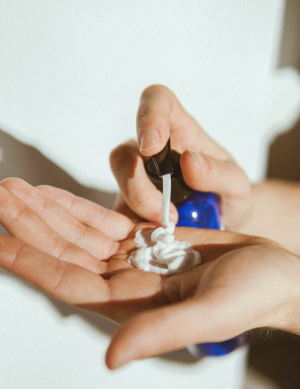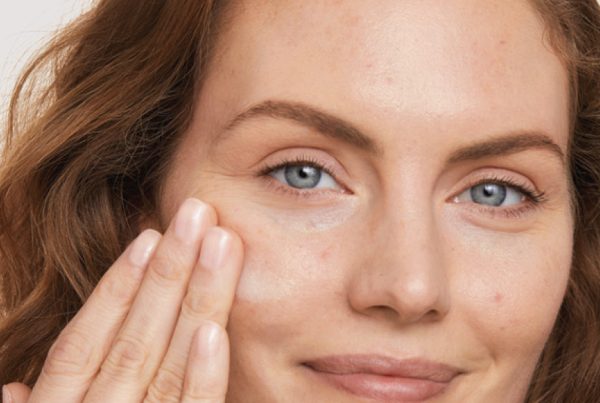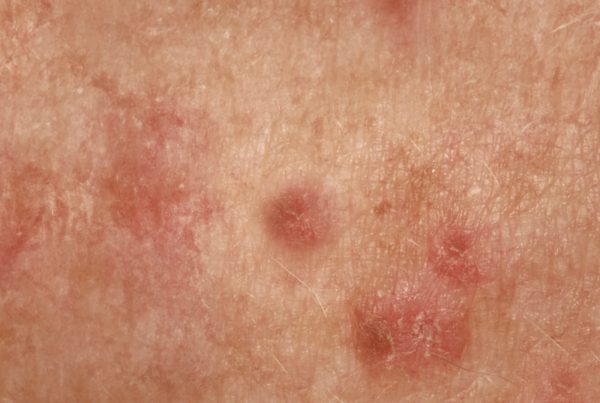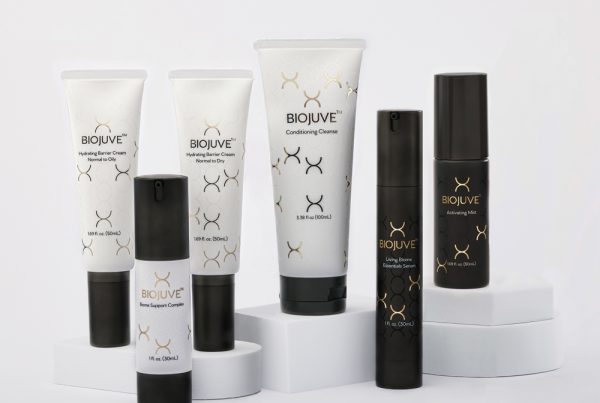
A common concern of Skin Resus clients is the potential for allergies, skin irritation and inflammation related to skincare products.
Skin irritation and inflammation can be caused by any product including moisturisers and sunscreens and can be due to a many reasons – sweat retention, folliculitis (acne-like reactions), true allergy, irritation (eg, due to pH imbalance or active ingredients such as acid peels) and a number of other less common causes.
Bear in mind that even just too much water contact can lead to a loss of skin barrier function and subsequent irritation or dryness – perhaps you’ve experienced this with all the increased hand washing that has been happening in the past 12 months.
If you have sensitive or inflamed skin, the incidence of contact dermatitis is much higher – for some this is temporary, such as after a laser procedure, and for others, like those with eczema, it may be ongoing. And if you are prone to acne, rosacea or peri-oral dermatitis, occlusive products such as makeup and sunscreen can exacerbate these.
There is a long list of ingredients which can cause allergic contact dermatitis; the most common ones present in products are fragrances and preservatives. Most products labelled ‘low-allergy’ should be fragrance-free and the label ‘dermatologist tested’ is “really just BS and should be ignored” as what is perfectly fine for one person can cause irritation and inflammation for another!
Ingredient Analyzer
Unsure if a product you’re using has an ingredient you’re sensitive to? Enter the details for analysis of potential harm in this handy website https://www.skincarisma.com/ingredient-analyzer
Moisturisers with Low-Allergenic Potential
If you’re struggling to find a moisturiser that doesn’t cause irritation, Dave recommends having a try of these low-allergy products:
Aveeno Eczema Care
Cera Ve Moisturising Lotion
Eucerin Plus Intensive Repair
Neutrogena Norwegian Formula Deep Moisture Body Lotion
La Roche Posay Toleraine
Pure Papaya Ointment
Preservatives
For those interested, Dave has detailed the most common problem ingredients below:
Fragrances – the most common problem ingredient of them all
Preservatives – the main allergenic preservatives are:
PARABENS – these are MORE likely to cause allergy on INFLAMED skin – eg, after a procedure
VITAMIN E (TOCOPHEROLS) – CeraVe and many others
PHENOXYETHANOL – CeraVe, Kiehl’s, Drunk Elephant, Dermalogica, Eucerin Plus
ESSENTIAL OILS – esp Tea tree oil, linalool, geraniol, etc
BENZYL ALCOHOL – eg, Aveeno, QV Daily
PROPYLENE GLYCOL (Butylene glycol, propyleneglycol) – Toleraine, Drunk Elephant,
Dermalogica Intensive Moisture
ISOTHIAZOLINONES – these are present in baby wipes, Pantene products, La Mer moisturiser and even house paint! – these are potent allergens and are the most common allergen in hand and face dermatitis; wash off products like cleansers though are less of a problem
FORMALDEHYDE RELEASERS – Quaternium 15, Imidazolidinyl urea
Iodopropynyl butylcarbamate – QV Daily
BHA and BHT –eg, Kiehl’s Moisturiser
LANOLIN – eg, La Mer – also more likely to cause allergy on inflamed skin
The Take Home Message
Trying to pin down individual allergy ingredients in skincare products is challenging. Dr David’s advice is to limit the amount of skincare products used, don’t overwash and use lighter, fragrance-free products. Also, check ingredient lists and try swapping to an alternative with a different preservative if you’re reactive.
Almost all products with the exception of Vaseline contain preservatives, and many contain a mix of 2 – 4 ingredients which may cause contact allergies. Parabens are becoming less common due to negative publicity, although some favour parabens over others as its allergy potential is actually lower on intact skin.
Further Reading
There is a lot of talk about the other potential harms of some chemicals as potential endocrine disrupters – BHA, BHT and parabens especially (see davidsuzuki.org if you are interested). With all the other potential sources of ‘endocrine disruption’, such as microplastics in the food chain, it is yet to be clearly determined if this makes any difference.




